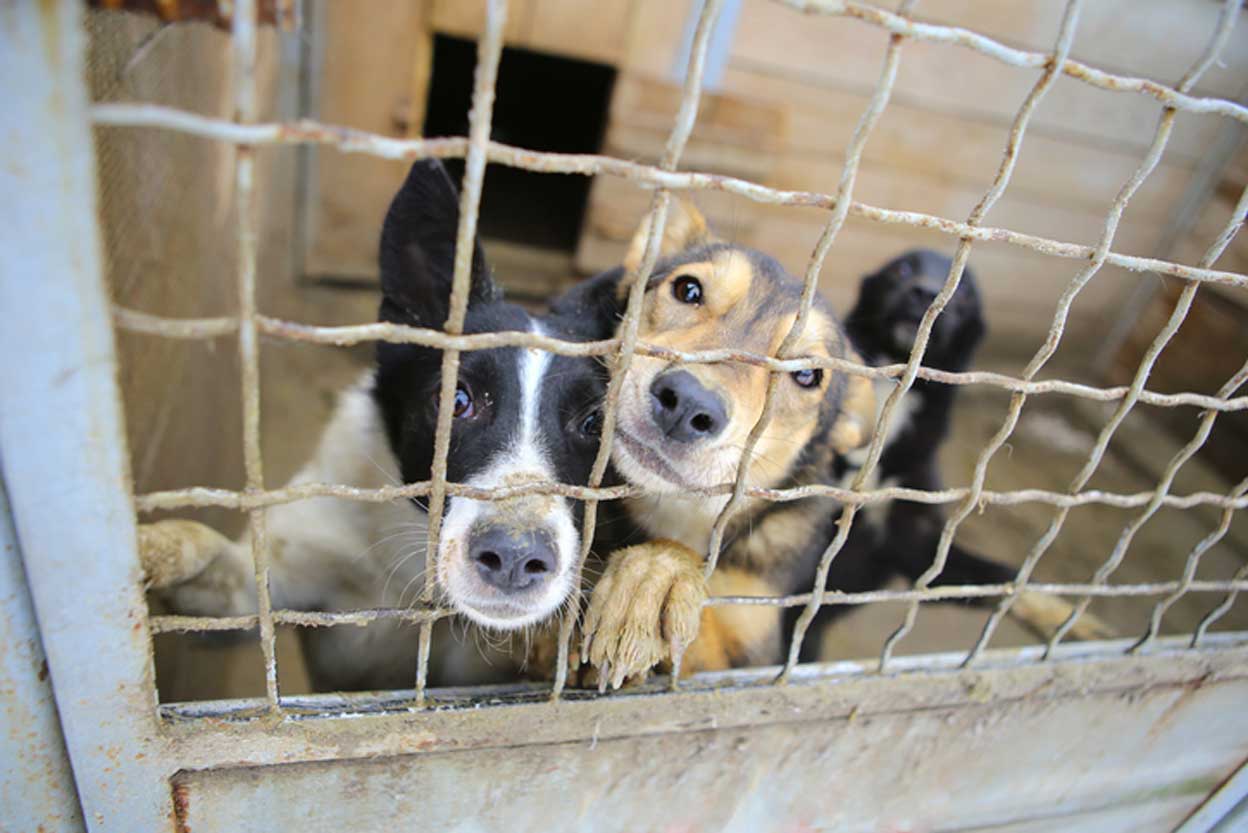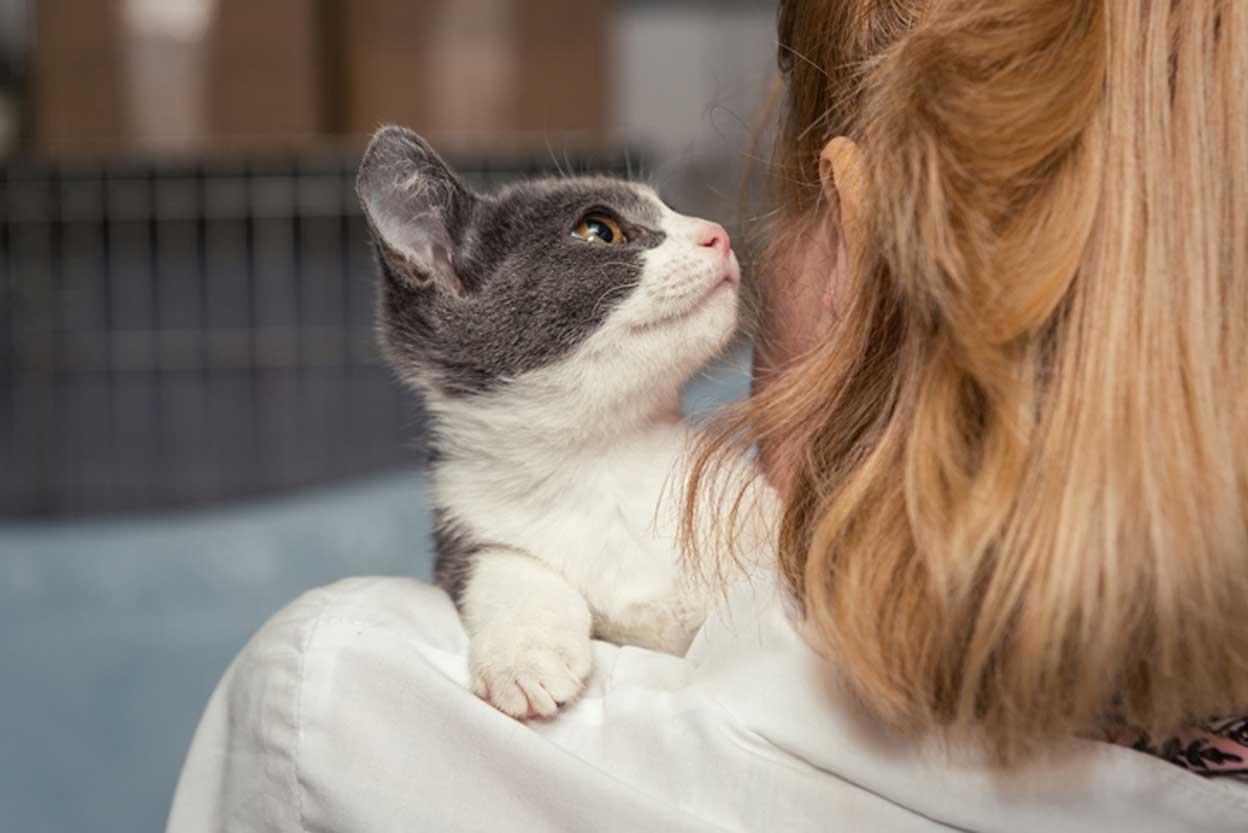Making the decision to surrender a pet is never easy. Circumstances often change, or maybe you weren’t quite prepared for the costs and commitments that come with pet ownership. Whatever the reason, there are often steps you can take to help find a solution. Surrendering a pet should always be a last resort. It should only ever be done after considering all the options and giving it some serious thought. Whether your dog barks too much, you’re struggling to afford it, it’s too destructive, it doesn’t obey you, it keeps escaping, you’re renting or you simply don’t want it anymore, there are lots of things you can try. In 2016, the RSPCA received 137,391 animals nationally. Of those, many had to be euthanased including 16,205 cats, 5,872 dogs and 15,681 other animals such as horses, small animals, livestock and wildlife. There are many other pets not received by the RSPCA that face the same fate, with the number of healthy but unwanted cats and dogs killed each year in Australia estimated to be a staggering 250,000. In many of these cases, with some early intervention, these pets may have been able to stay with their owners or find new homes.  One of the most important things to ask yourself is why you’re surrendering your pet so you can try to find a solution to your particular issue. At the RSPCA, a common reason people bring their pets in is because they think they’re allergic to them. However, after checking with their GP they often find the allergic reaction is caused by something else such as flea treatment. Even if this isn’t the case, it’s still possible to enjoy a pet you’re allergic to. The RSPCA recommends the following:
One of the most important things to ask yourself is why you’re surrendering your pet so you can try to find a solution to your particular issue. At the RSPCA, a common reason people bring their pets in is because they think they’re allergic to them. However, after checking with their GP they often find the allergic reaction is caused by something else such as flea treatment. Even if this isn’t the case, it’s still possible to enjoy a pet you’re allergic to. The RSPCA recommends the following: The best and most responsible course of action to take if you decide not to keep your pet is to rehome them. Allow as much time as possible to do this to increase your pet’s chances. If you can’t find a trusted family member or friend to adopt your pet, take them to a reputable channel such as the RSPCA or a rescue organisation. These groups screen would-be owners to ensure that pets are being rehomed to responsible and caring people. Finally, if you do surrender your pet, don’t be tempted to get another one or trade for a different breed that you think suits your family better – just wait a few years to see if your family is ready then.
The best and most responsible course of action to take if you decide not to keep your pet is to rehome them. Allow as much time as possible to do this to increase your pet’s chances. If you can’t find a trusted family member or friend to adopt your pet, take them to a reputable channel such as the RSPCA or a rescue organisation. These groups screen would-be owners to ensure that pets are being rehomed to responsible and caring people. Finally, if you do surrender your pet, don’t be tempted to get another one or trade for a different breed that you think suits your family better – just wait a few years to see if your family is ready then.
 One of the most important things to ask yourself is why you’re surrendering your pet so you can try to find a solution to your particular issue. At the RSPCA, a common reason people bring their pets in is because they think they’re allergic to them. However, after checking with their GP they often find the allergic reaction is caused by something else such as flea treatment. Even if this isn’t the case, it’s still possible to enjoy a pet you’re allergic to. The RSPCA recommends the following:
One of the most important things to ask yourself is why you’re surrendering your pet so you can try to find a solution to your particular issue. At the RSPCA, a common reason people bring their pets in is because they think they’re allergic to them. However, after checking with their GP they often find the allergic reaction is caused by something else such as flea treatment. Even if this isn’t the case, it’s still possible to enjoy a pet you’re allergic to. The RSPCA recommends the following:- Create a pet-free zone in your home, such as your bedroom, and do not allow your pet to access this area. Often it’s not a small exposure to an allergen that triggers a reaction, but increased exposure over time.
- Wash and groom your pet regularly. Bathing them and trimming their fur will prevent the build-up of old and loose hair.
- Keep your home clean and invest in an air purifier. Regularly wash your bedding, carpet and curtains.
 The best and most responsible course of action to take if you decide not to keep your pet is to rehome them. Allow as much time as possible to do this to increase your pet’s chances. If you can’t find a trusted family member or friend to adopt your pet, take them to a reputable channel such as the RSPCA or a rescue organisation. These groups screen would-be owners to ensure that pets are being rehomed to responsible and caring people. Finally, if you do surrender your pet, don’t be tempted to get another one or trade for a different breed that you think suits your family better – just wait a few years to see if your family is ready then.
The best and most responsible course of action to take if you decide not to keep your pet is to rehome them. Allow as much time as possible to do this to increase your pet’s chances. If you can’t find a trusted family member or friend to adopt your pet, take them to a reputable channel such as the RSPCA or a rescue organisation. These groups screen would-be owners to ensure that pets are being rehomed to responsible and caring people. Finally, if you do surrender your pet, don’t be tempted to get another one or trade for a different breed that you think suits your family better – just wait a few years to see if your family is ready then.
